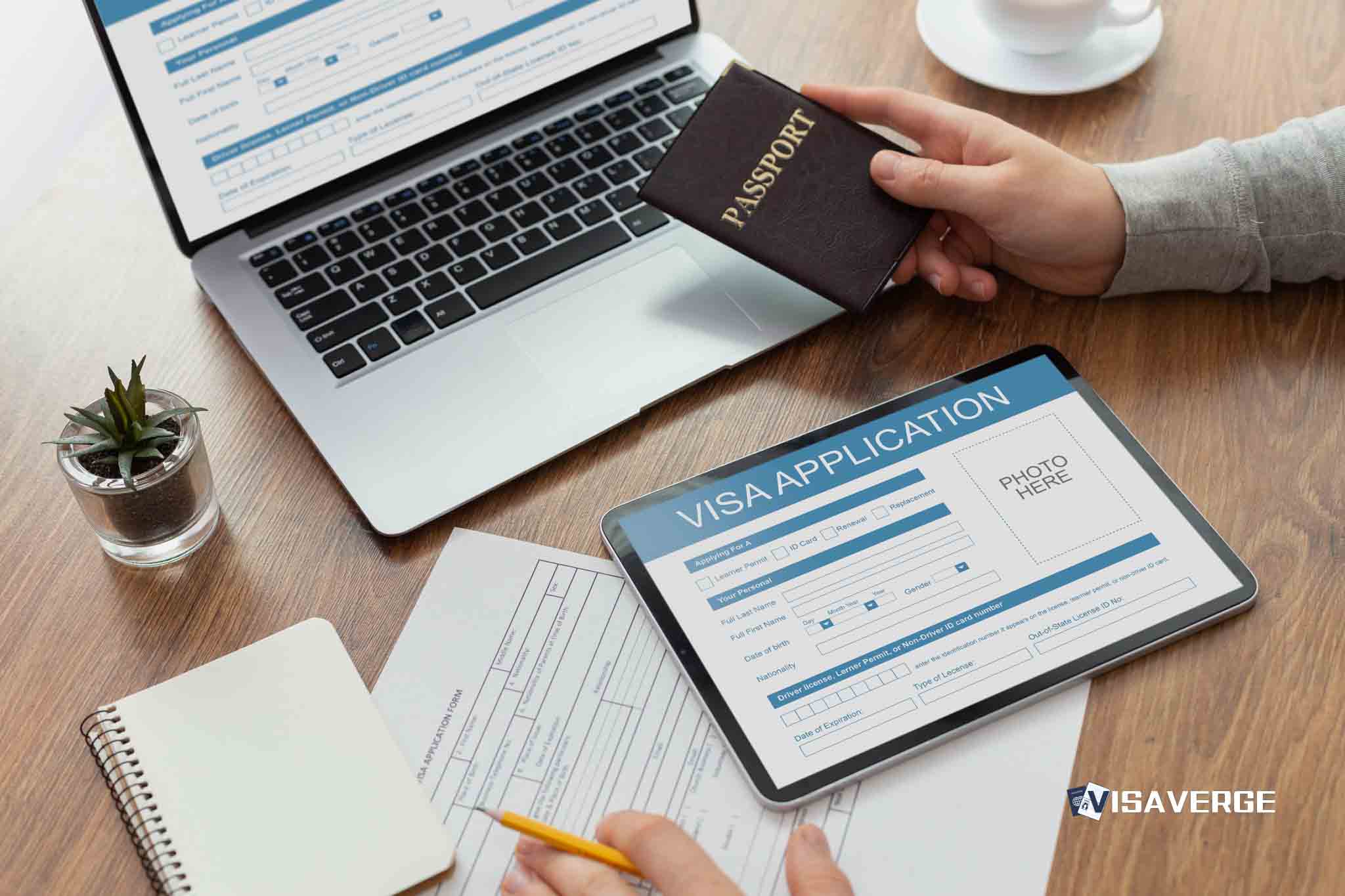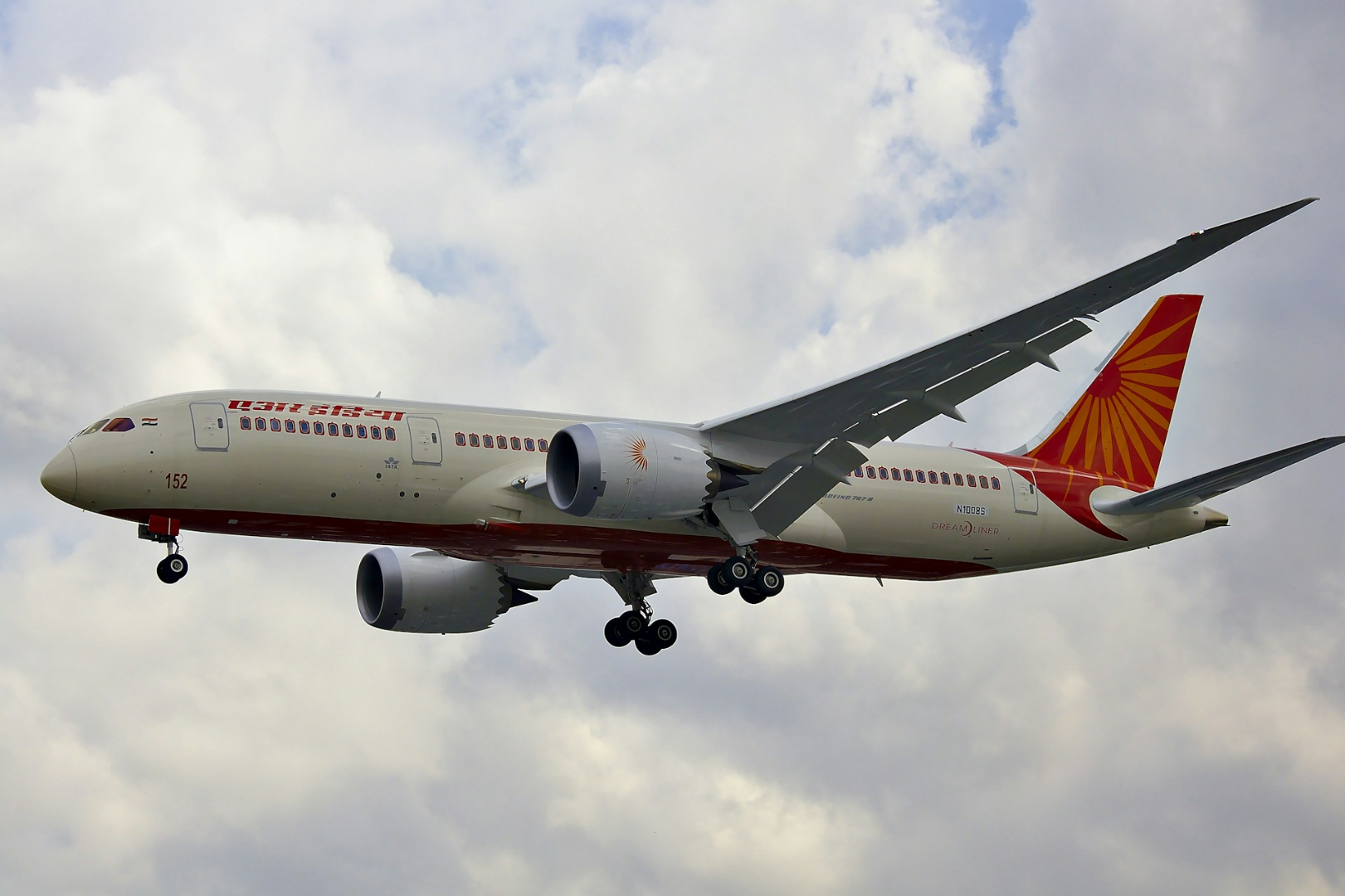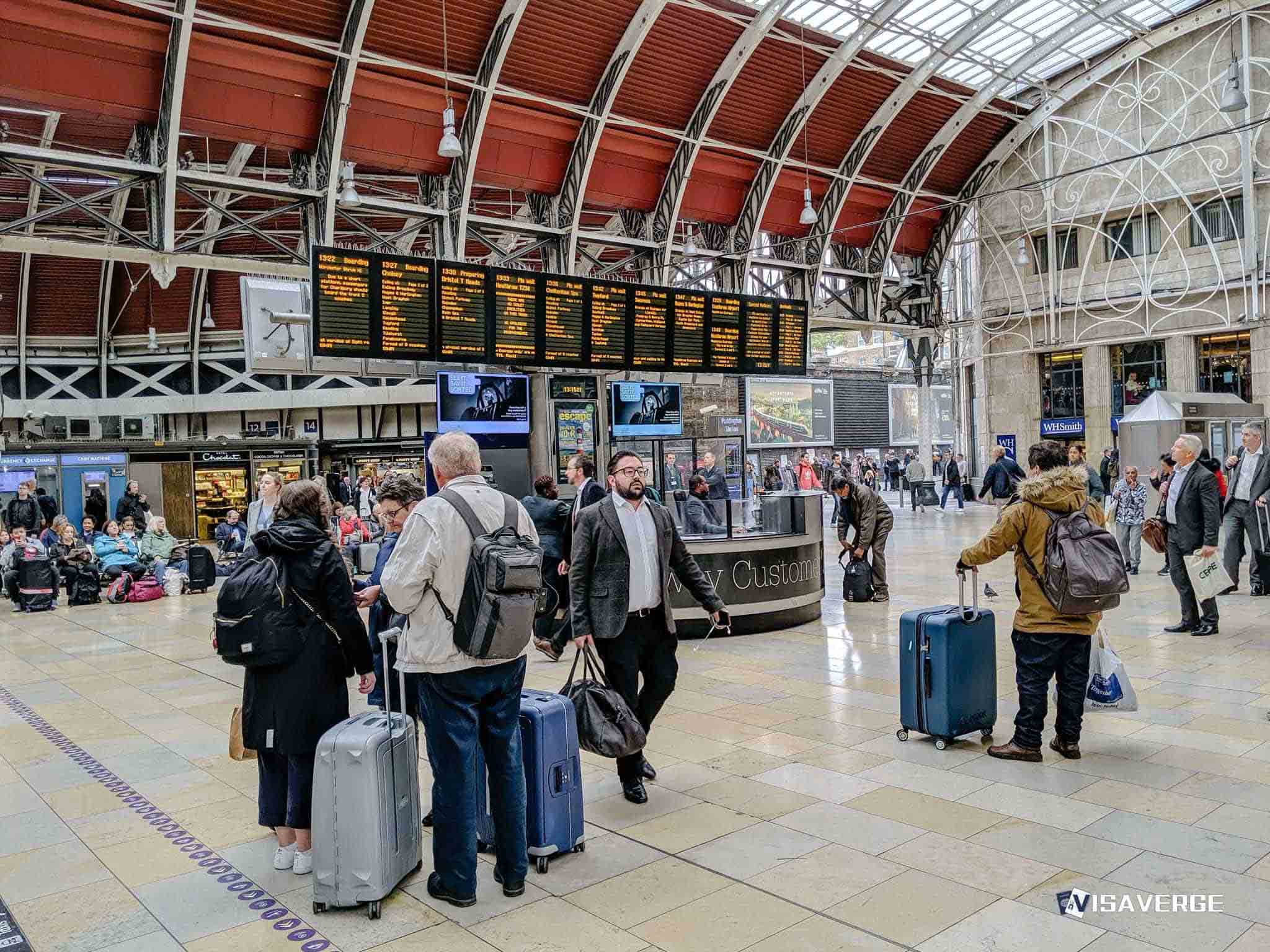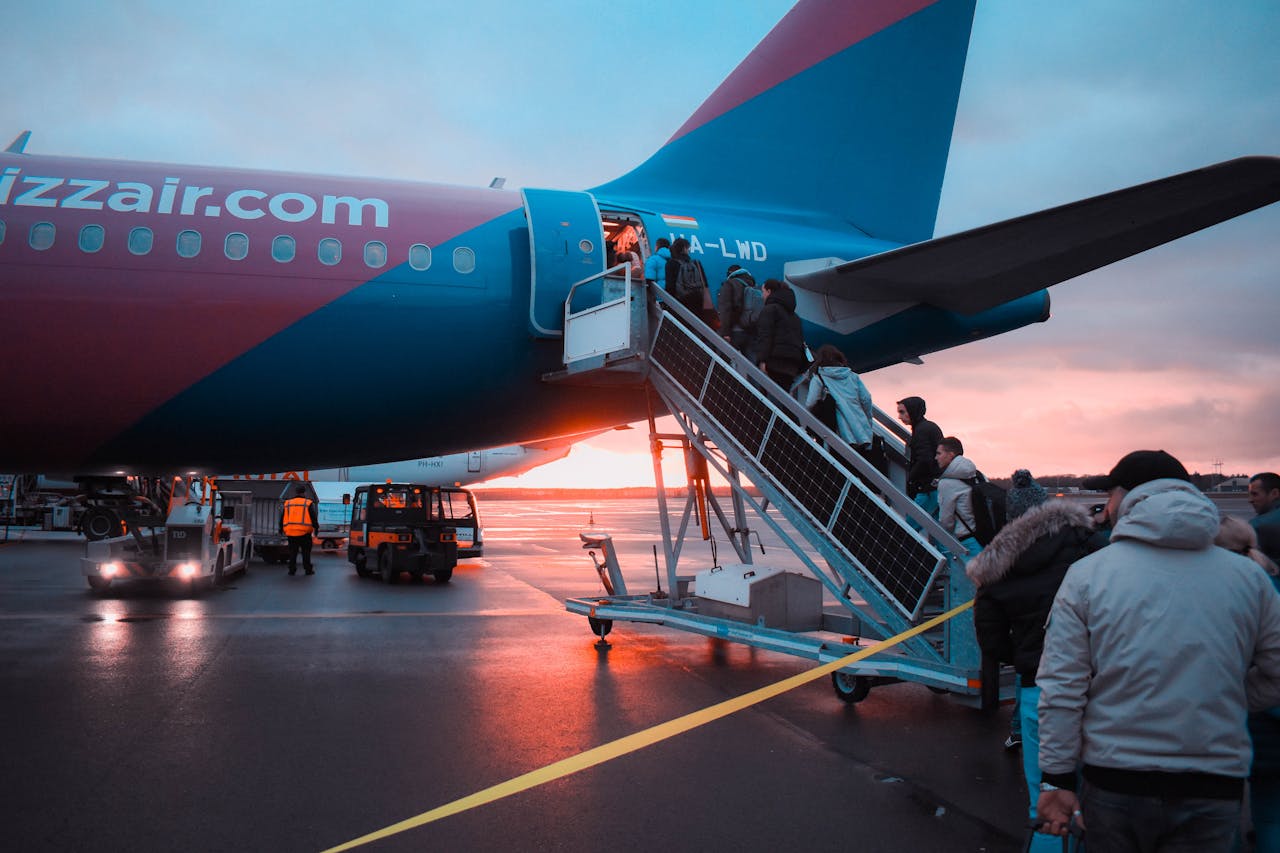Key Takeaways
• U.S. denies B-2 visas for funeral attendance citing Section 214(b) presumption of immigrant intent.
• Starting May 1, 2025, DS-160 form barcodes must match appointment booking exactly to avoid delays.
• Options after denial include expedited appointments, humanitarian parole, reapplication, and congressional assistance.
A grieving father’s attempt to attend his son’s funeral in Kansas 🇺🇸 was stopped by a visa denial, highlighting the strict and often unforgiving nature of U.S. immigration policy—even in the most urgent humanitarian situations. This case, while not unique, brings to light the challenges many families face when tragedy strikes across borders. The story also raises important questions about how U.S. consular officers handle emergency visa requests and what options are available for those desperate to say a final goodbye.
Why Was the Visa Denied?

When a person applies for a visa to attend a funeral in the United States, they usually seek a B-2 visitor visa. This visa is meant for short-term visits, such as tourism, family visits, or attending special events like funerals. However, U.S. law—specifically Section 214(b) of the Immigration and Nationality Act—requires consular officers to assume that every applicant intends to immigrate permanently unless they can prove otherwise. This is known as the “presumption of immigrant intent.”
To overcome this presumption, applicants must show strong ties to their home country. These ties can include:
– Steady employment
– Family members who remain at home
– Property ownership
– Financial assets
– Social or community connections
Even in heartbreaking situations, such as a son’s funeral in Kansas, the applicant must convince the officer that they will return home after their visit. If the officer is not satisfied, the visa is denied—sometimes in just a few minutes, with little explanation.
According to analysis by VisaVerge.com, consular officers have wide discretion in these decisions, and their judgments are rarely overturned. The U.S. Department of State explains the process and requirements for visitor visas on its official website.
The Human Cost of Visa Denials
For families already dealing with loss, a visa denial can feel like a second blow. The inability to attend a loved one’s funeral in Kansas or elsewhere in the United States 🇺🇸 can leave lasting emotional scars. Many people save for years to make such a trip, only to be turned away at the last moment.
Consider the following scenario:
– A father in India loses his son, who lived and worked in Kansas.
– He gathers all necessary documents: his son’s death certificate, proof of relationship, funeral details, and evidence of his job and property in India.
– Despite his preparations, the consular officer denies his visa, citing insufficient ties to his home country.
This situation is not uncommon. Each year, thousands of people face similar heartbreak, unable to say goodbye to loved ones because of strict visa rules.
Recent Policy Changes Affecting Emergency Visa Requests
The U.S. government has made several changes in recent years that affect how quickly and easily people can get visas for emergencies like funerals.
Stricter DS-160 Barcode Requirements
Starting May 1, 2025, all visa applicants must bring a DS-160 form with a confirmation barcode that matches exactly the one used to book their appointment. The DS-160 form is the online application for nonimmigrant visas. Even small mistakes—like a typo in the barcode—can force applicants to start over, causing delays that are devastating in time-sensitive cases.
Changes to the Visa Interview Waiver Program
In February 2025, the U.S. Department of State changed the rules for the Visa Interview Waiver Program (sometimes called “Dropbox”). Now, only people renewing a visa in the same category within the last 12 months are eligible. Previously, the window was 48 months. This means fewer people can skip the in-person interview, making it harder to get quick approval in emergencies.
These changes, while aimed at improving security and efficiency, can make it even more difficult for grieving families to get to funerals in the United States 🇺🇸.
What Can You Do If Your Visa Is Denied?
If your visa is denied when you’re trying to attend a funeral in Kansas, you still have some options. While the process is challenging, understanding your choices can help you act quickly.
1. Request an Expedited Appointment
If you haven’t yet had your interview, you can ask for an expedited appointment. Here’s how:
– Schedule the earliest available regular appointment online.
– Log in to your account and select “Request Expedite.”
– Provide documentation of the emergency, such as a death certificate and funeral details.
Consular officers may grant expedited appointments for emergencies like a close relative’s death, but approval is not guaranteed. Each embassy or consulate has its own rules and may require additional proof.
2. Apply for Humanitarian Parole
If you cannot get a visa in time, you may apply for humanitarian parole. This is a special permission to enter the United States for urgent humanitarian reasons. Humanitarian parole is not a visa, but it allows you to travel temporarily for emergencies.
To qualify, you must show:
– A bona fide emergency, such as attending a funeral
– No other way to enter the United States in time
– Proof of the relationship to the deceased and details of the funeral
Applications for humanitarian parole are reviewed case by case. The process can be slow, but in some cases, urgent requests are handled quickly. You can find the application form Form I-131, Application for Travel Document on the official U.S. Citizenship and Immigration Services (USCIS) website.
3. Reapply With Stronger Evidence
If your visa was denied, you can reapply, but you must address the reasons for the denial. Bring new or stronger evidence of your ties to your home country, such as:
– Updated employment letters
– Additional financial documents
– Proof of family obligations at home
Include a detailed letter explaining your situation and why you will return after the funeral.
4. Seek Help From a U.S. Congressional Office
In rare cases, contacting the office of a U.S. Senator or Representative from Kansas 🇺🇸 can help. They may be able to contact the embassy or consulate on your behalf, especially if the funeral is imminent. While this does not guarantee approval, it can sometimes speed up the process.
What Documents Should You Prepare?
For the best chance of approval, gather the following:
– Death certificate or hospital letter confirming the death
– Proof of relationship (birth certificate, marriage certificate, etc.)
– Funeral details (date, location, contact information for the funeral home)
– Evidence of ties to your home country (employment letter, property deeds, family information)
– Financial documents (bank statements, pay slips)
– Return travel plans (flight reservations showing you plan to leave the United States after the funeral)
Having these documents ready can help convince the consular officer that your visit is temporary and genuine.
Why Are Visa Denials So Common in Humanitarian Cases?
Many people are surprised to learn that even in emergencies, visa denials are common. The main reasons include:
– Strict interpretation of the law: Officers must follow Section 214(b) and cannot make exceptions based on emotion.
– Limited time for interviews: Most interviews last only a few minutes, leaving little room for detailed explanations.
– High volume of applications: Consular officers process thousands of applications each week and must make quick decisions.
– Fear of overstays: The U.S. government is concerned about people who enter on a visitor visa and do not leave.
As a result, even well-prepared applicants with genuine emergencies can be denied.
Real-Life Example: A Father’s Grief
Imagine a father in Nigeria who receives news that his only son has died suddenly in Kansas 🇺🇸. He applies for a B-2 visa, bringing all the required documents. At the interview, the officer asks a few questions and then hands him a denial letter, citing Section 214(b). The father pleads, explaining that he must perform religious rites for his son, but the decision stands.
This scenario, reported by families and immigration lawyers worldwide, shows how the system can fail people in their darkest moments. According to VisaVerge.com, such denials are rarely reversed, and appeals are not allowed.
How Can You Improve Your Chances?
While there is no guaranteed way to get a visa for a funeral, immigration experts recommend the following steps:
– Apply as soon as possible. Don’t wait for all funeral details to be finalized.
– Request expedited processing immediately. Use the embassy’s online system to explain your emergency.
– Provide overwhelming evidence of your intent to return home. The more proof, the better.
– Include a personal letter. Explain your relationship to the deceased and your reasons for returning.
– Consider humanitarian parole as a backup. If your visa is denied, apply for parole right away.
– Ask for help. Contact local officials, religious leaders, or community organizations who can write letters of support.
What If You’re Still Denied?
If all options fail, you may have to attend the funeral virtually. Many families now use video calls to participate in services when travel is impossible. While this is not the same as being there in person, it can provide some comfort and closure.
The Broader Impact on Immigrant Families
Visa denials for funerals and other emergencies affect not just individuals, but entire families and communities. The pain of being separated at a time of loss can strain relationships and deepen the sense of isolation many immigrants feel.
Employers, too, may be affected if workers are unable to grieve properly and return to work focused and healthy. Community leaders often call for more compassionate policies, but so far, the law remains strict.
Official Resources and Further Reading
For more information on visitor visas and emergency travel, visit the U.S. Department of State’s official visa page. This site provides up-to-date details on requirements, forms, and embassy procedures.
If you are considering humanitarian parole, review the USCIS Humanitarian Parole page for eligibility and application instructions.
Key Takeaways
- Visa denials for funerals in Kansas 🇺🇸 and elsewhere are common, even in urgent humanitarian cases.
- Applicants must prove strong ties to their home country and the temporary nature of their visit.
- Recent policy changes have made emergency visa processing more difficult.
- Options include expedited appointments, humanitarian parole, reapplying with stronger evidence, and seeking help from U.S. officials.
- Prepare all documentation carefully and act quickly.
- If denied, consider virtual participation in funeral services.
While the U.S. immigration system is designed to protect borders, it can sometimes prevent families from coming together when they need each other most. Understanding the rules and acting swiftly can improve your chances, but there are no guarantees. For many, the pain of a visa denied at a time of loss is a wound that never fully heals.
Learn Today
B-2 Visitor Visa → A nonimmigrant visa for short-term visits, including tourism, family visits, and attending events like funerals.
Section 214(b) → U.S. immigration law presuming visa applicants intend permanent immigration unless proved otherwise.
DS-160 Form → The online application form for nonimmigrant visas required with a matching barcode for appointment verification.
Humanitarian Parole → Special permission allowing temporary U.S. entry for urgent humanitarian reasons, not a visa.
Visa Interview Waiver Program → A program allowing certain visa renewals without in-person interviews under specific eligibility conditions.
This Article in a Nutshell
A grieving father’s visa denial prevented him from attending his son’s Kansas funeral, spotlighting strict U.S. immigration rules limiting emergency family visits.
— By VisaVerge.com
Read more:
• Kansas City to return historic Eaglet plane to its original owner
• American Airlines adds flights at Kansas City International Airport for NFL Chiefs fans
• Misleading Flyers Spark Panic in Kansas City Courts
• Kansas City Immigration Lawyer Fights Trump College Ban
• Thai Airways and Kansas Modification Center to turn Boeing 777s into freighters







